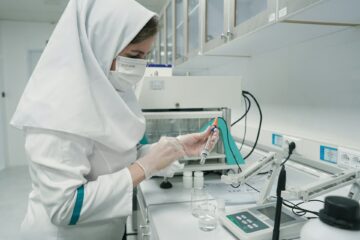Starting the journey toward recovery can feel overwhelming, especially when prescription medications have taken hold of daily life. Many people assume that because these drugs are prescribed by a doctor, they carry less risk than illicit substances. The reality is that misuse or dependence on prescription medication can be just as dangerous. That’s why effective prescription drug detox programs are often the first step in reclaiming health and stability.
People will get the chance to withdraw completely from the medication and prepare for recovery in a structured, compassionate, and safe environment, all while being closely supervised by a clinical team. Without this step, recovery can be exceedingly hard both on the body and the mind.
The Reason Prescription Drugs Are Easy to Become Dependent On
The reason prescription medications can easily lead to a cycle of dependence is that they are opioids, benzodiazepines, and stimulants. They all relieve pain, anxiety, and even help people focus. Although these medications help people in the short term, when they are used over a long period of time, they will change the body’s brain chemistry. A person will almost always lose track of time and not realize how much a medication controls their life when it is used for a long time.
The cycle of dependence sets in when tolerance increases, requiring higher doses to achieve the effect. Eventually, the brain and body become so adapted to the drug that they become dysfunctional without it. This causes a person attempting to stop to experience withdrawal symptoms, which can be dangerous and include severe health risks, and which can be made even worse by the presence of a drug dependency.
The Role of Detox in Breaking the Cycle
Detox is more than just the cessation of drug use. Detox is the process of creating a safe environment to manage withdrawal symptoms and stabilize the body, which is essential to breaking the dependence cycle. This is especially critical when dealing with prescription medication withdrawal, which can include severe risks.
In a detox program, the person will have their vital signs monitored by a care provider, and prescriptions in safe amounts will be dispensed to the person, which will be coupled with emotional support. This approach to withdrawal allows the clinician to focus on the psychological and physical symptoms, making detox crucial to the person’s long-term recovery.
What Happens During Detox
Many people fear having a detox. This is usually a result of a negative withdrawal experience. Relax! Professional detox (you know, ‘detox centers) use evidence-based medical approaches focusing on symptom reduction.’ Regardless of the experience being unique, detox happens in 3 stages:
Evaluation
The logic of the account of the medical history, substance use patterns, and mental health needs is a comprehensive approach to detox. In order for the care to be effective, success has to be a collaborative effort.
Stabilization
Once the care plan is put in action, the focus shifts to the reduction of withdrawal symptoms and the adjustment of the body to new changes. The type of prescription drug removed changes the control of complications and cravings; any associated medications will be strategic to the plan.
Transition to Ongoing Care
The root problem of addiction is not resolved in detox. The remaining portion of the plan solidifies the ethos of the addiction program. The individual is accepted to move to therapy, counseling, or gain admission to a treatment center at the primary steps in the detox process.
Why Professional Support Matters
Detoxing at home without professional help may seem like a time saver, but it can lead to relapses and emergencies. Leaving opioids and benzodiazepines, and their prescribed relatives, can cause severe withdrawal symptoms like seizures and heart problems.
Detox programs ensure that:
- A medical professional keeps track of your symptoms and safety and determines if a medical emergency arises, and if it does.
- Emotional support to minimize feelings of isolation.
- Medication-assisted treatment is provided where applicable.
- A physical environment that restricts access to triggering substances.
Because of this comprehensive support, you’re more likely to survive the withdrawal process.
The Emotional Side of Detox
Addiction doesn’t only affect your body; it also impacts your emotions and mental state. Many people who are entering detox are primarily hit with a wave of fear, shame, and uncertainty, which are the triggers for a potential relapse if left unassisted.
Counselors and professional detox staff have the means and support to help these individuals with the management of all of their emotions. Group discussions, therapy sessions, and a one-on-one conversation provide all the encouragement and positive reinforcement necessary. Not only is this support functional, but it is also crucial.
Building a Bridge to Long-Term Recovery
Completing a detox program is not the end of the recovery journey. Long-term recovery requires individuals to work on the issues that caused their addiction. This is why quality detox programs focus on the next step of care, whether it is inpatient treatment, outpatient therapy, or support groups.
The next step in recovery is critical. Therapy teaches individuals essential skills such as coping mechanisms, healthy communication, and strategies to avoid relapse. Progress is possible, but it can be fleeting without ongoing steps to recovery.
Common Misconceptions About Detox
There are many misconceptions about detox, and these myths can prevent people from seeking the help they need. Here are a few of the most common:
- “Detox is enough to recover.” This is not true. Detox only treats physical dependence and is the first step in a series of long-term treatments needed to address the behaviors and thought patterns that need to be changed.
- “Withdrawal will be unbearable.” This is a common fear. Withdrawal symptoms can be managed, and detox is usually less intimidating than most people expect.
- “Detox is easy, and I can do it by myself.” Most people who try to self-detox end up relapsing or facing dangerous health risks.
Clarifying these myths is crucial in helping people understand that detox is a safe, supportive, and necessary step.
The Ripple Effect of Prescription Drug Detox Programs
The positive impact of detox doesn’t just affect an individual. Recovery also benefits family, friends, and the community. The risk of overdosing is lower, health improves, and stability is regained.
People who take back charge of their lives often re-establish social ties, find the joy of work again, and participate in community activities. In this sense, detox represents the beginning of even bigger positive changes.
Choosing the Right Program
Detox is not the same for everyone. The best detox programs:
- Please focus on the individual and their needs
- Have 24/7 medical supervision
- Provide a clear continuum of care
- Weave mental health treatment and physical care
A wise choice can translate into long-term success instead of just relief.
Hope Through Healing
Addiction feels lonely, but it doesn’t have to be. With support, prescription drug detox programs provide a path that is both medically and emotionally secure. For most people, this step is the beginning of their recovery journey.
Educating oneself and one’s family about detox options facilitates making treatment choices. Recovery may go up and down, yet deep and lasting healing can be achieved when built on solid and sturdy foundational practices.
Prologue
Recovering from dependence on prescription drugs, detox programs provide that all-important first step. Detox programs are safe, provide direction, and are the first step to a new life and a life filled with optimism. With professionals and ongoing care, dependence can be overcome, and a new life can be built.
Selecting a program is about selecting life, and for those finally ready to tackle it, Tennessee Behavioral Health offers all the care and support needed to progress.












